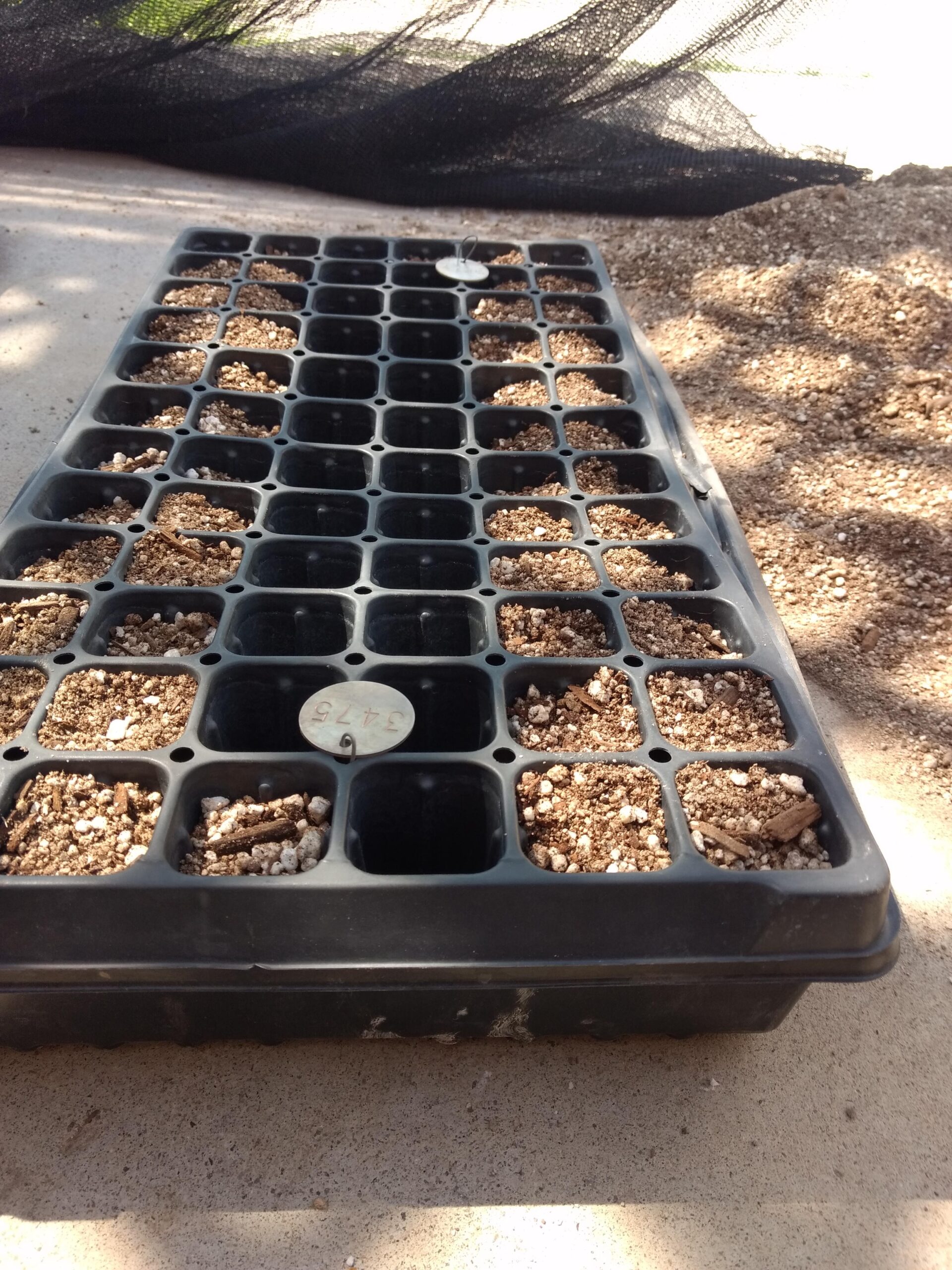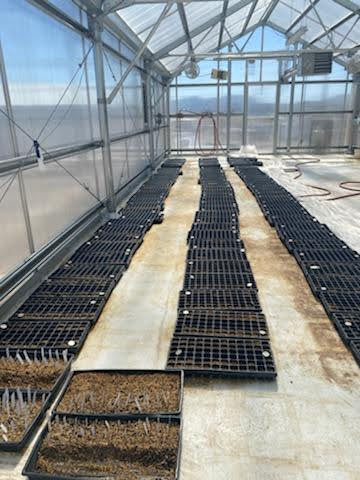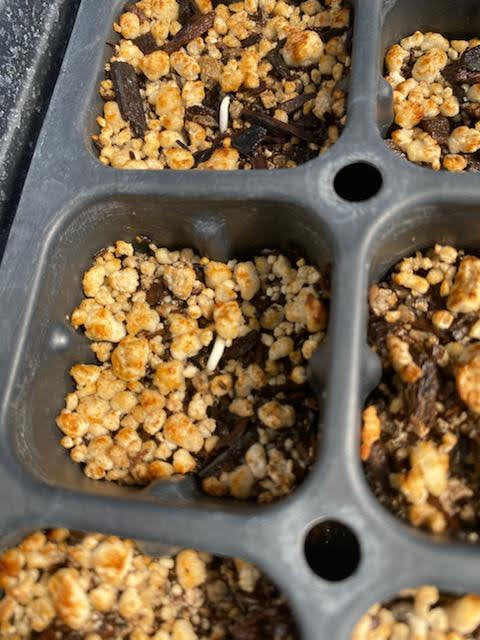Michele here, one of four interns working on the Joshua Tree Genome Project (JTGP). Last night marked my 14th night in Boulder City, NV. Last night also marked the first night finding a lizard in my bathroom sink! Do not worry, the lizard was safely moved outdoors, but weather or not it finds its way back inside remains a mystery for another day! Other than the reptilian companions, the desert has greeted us in ways we could not comprehend prior to arrival. Everyone said, it’ll be a dry heat, you’ll get so tan, and drink lots of water! Every one of those things has held truer than we imagined. This week also brought us two milestones for the Joshua Tree Genome Project: (1) we can finally access the USGS greenhouse, and (2) the Joshua Tree seeds have been watered!

Both of these events have had all of us interns sitting on the edge of our seats. Getting into the greenhouse meant that we would finally begin growing nearly 5,000 seeds that we had spent the last week cleaning, counting, sorting and planting. After spending copious hours caring for these seeds, it will be magical to see them when the first signs of growth appear.
All of the seeds were watered on August 6th. Joshua Tree seeds take approximately 7-10 days to germinate under ideal conditions. Part of our duties included designing how we would manage and collect germination data on all of the Joshua Tree seeds. Initially this task was daunting considering the shear amount of seeds there are to manage. However, creating the data sheets and arranging the plants became an adrenaline fueled frenzy to create the most efficient and detailed plan to manage the project. This was actually pretty exciting for all of us to compile our ideas into the project. Once the seeds begin to germinate we will be able to begin our monitoring plan and watch our tiny Joshua Trees emerge.

Between time spent in our little basement sorting seeds, we have gotten to meet many of the collaborators working on the Joshua Tree Genome Project from across the US. Talking with other ecologists and geneticists revealed to us a deeper understanding of the importance of the project. Gaining insight from multiple perspectives gave us a new foundation of knowledge that we did not have the week before.
To cap things off, we just got word that the Joshua Tree seeds have germinated! WOW. Things are moving quickly!

Signing off from the city that built the Hoover Dam,
Michele
